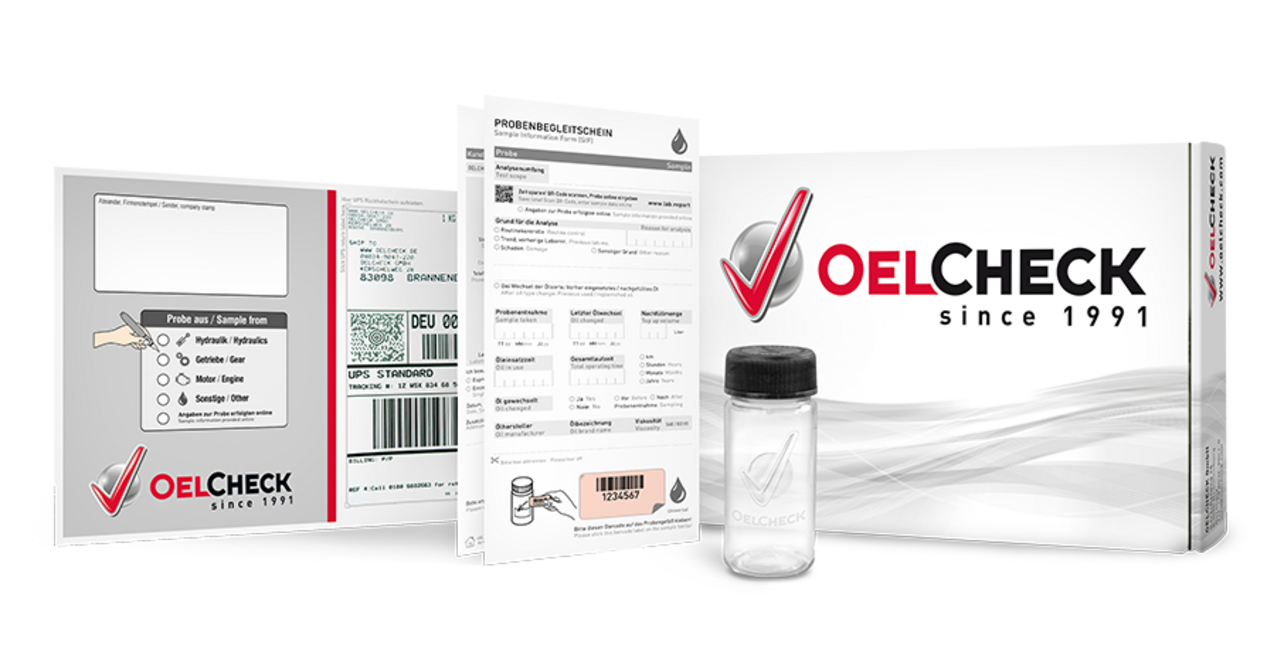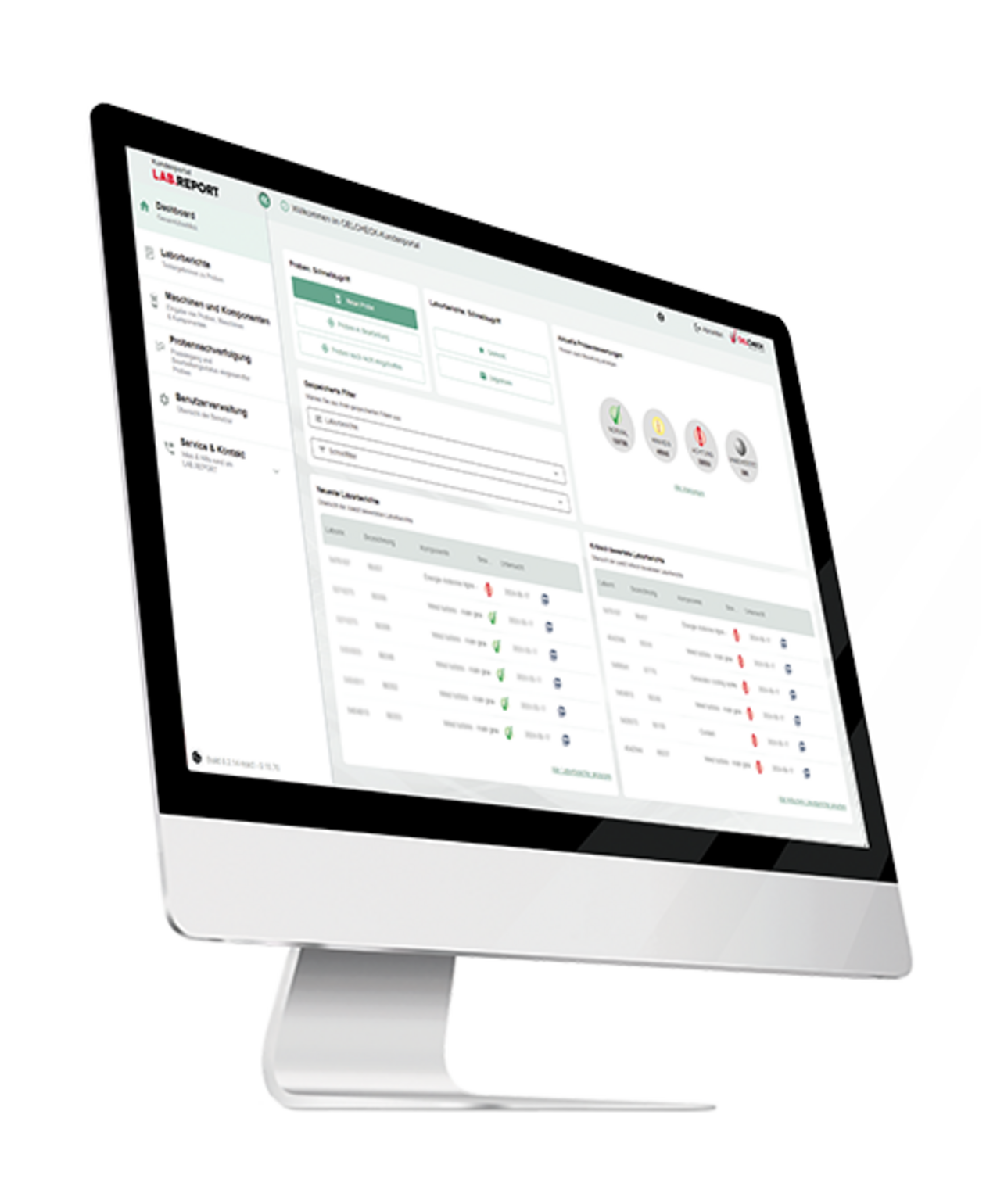SAE engine oil or HLP hydraulic oil for construction machinery hydraulics?
Some construction machine manufacturers recommend SAE engine oils for hydraulics, others HLP oils. However, we do not want to employ too many different types of oil.
So which oils are superior hydraulic oils?
Engine oil as hydraulic oil or HLP hydraulic oil?
OELCHECK answers:
In recent years, we have analyzed a large number of samples of engine and hydraulic oils from hydraulic systems of construction machinery in our laboratory. Around the year 2000, monograde engine oils, mostly first fill oils, of viscosity classes SAE 20W20 or 10W accounted for about half the number of samples, while approved multigrade engine oils for mobile hydraulics in viscosity classes SAE 15W-40 and SAE 10W-40 accounted for about a quarter. Today, the share of monograde and multigrade engine oils in mobile hydraulics is significantly lower. Thanks to the large number of samples analyzed, we can make the following representative statements:
- Multigrade engine oils SAE 10W40 and SAE 15W40 are developed for use as engine oils. They do not perform ideally in hydraulic plants.
- Monograde engine oils, especially when designed as first fill oils, perform significantly better than multigrade engine oils.
- HLP and HVLP hydraulic oils were originally designed for industrial hydraulics with oil change times of more than 5,000 operating hours. Compared to engine oils, they can be put to use without causing problems for a longer timer.
- Synthetic bio-oils based on saturated esters also perform very well, not least on account of the improved oil care for these expensive oils, if a residual mineral oil content of less than 2% is achieved during the oil type change.
These statements can be substantiated.
- Multigrade engine oils tend to behave negatively in hydraulic systems. They contain an additive content of up to 25% to improve multigrade characteristics and motor properties. When used in a hydraulic system, the viskosity is initially correct, but after a relatively short operating time of often less than 100 operating hours, the VI improvers are damaged to such a degree that the original multigrade character of the oil is no longer present. The fragments of sheared molecules increase the process of oil aging, cause sticky residues and deteriorate the air-release properties. The oil can take on a black color within a short time, due to the "diesel effect". There is a risk of damage due to cavitation.
- Monograde engine oils behave similarly to detergent HLPD hydraulic oils. They contain an additive package developed for engine oils. The high proportion of cleaning and dispersancy additives is not needed for hydraulics. These oils become problematic because the additives impair the air-release behavior after only a short time in such a way that the risk of cavitation damage increases considerably and sealing problems are magnified by the diesel effect.
- HLP industrial hydraulic oils are designed for long-term use in hydraulic systems. They contain just the right base oil and an additive selected for use in hydraulic systems. However, it should be remembered that there are basically two types of hydraulic oils, namely zinc-containing and zinc-free. It is imperative that these two types are not mixed. Mixing can lead to sludge-like precipitation of the zinc-containing reaction products and clog filters or cause cavitation, as the air-release properties can be severely impaired. Furthermore, mixing of zinc-containing and zinc-free hydraulic oil can lead to strong foaming.
- Bio-hydraulic oils based on saturated esters also perform well in construction machinery. As a result of natural EP behavior, only a few additives (mostly sulfur-phosphorus-based) are required. Due to polar properties, less stick slip (stick-slip effect) and squeaking occurs. The sealing and guide rings in cylinders remain elastic for a longer time. Thanks to the finer filtration, which is reflected in a better purity class, and the greater maintenance effort required since bio-oils are relatively expensive, they can often be used for up to 10,000 operating hours as a lifetime filling.
Regardless of the type of oil you decide to use in the long term, please be sure to follow the equipment manufacturer's instructions during the warranty period and use the analyses to check that you are really still using the oil you intended!
Read also: Miraculous oil increase in the engine of a construction machine




